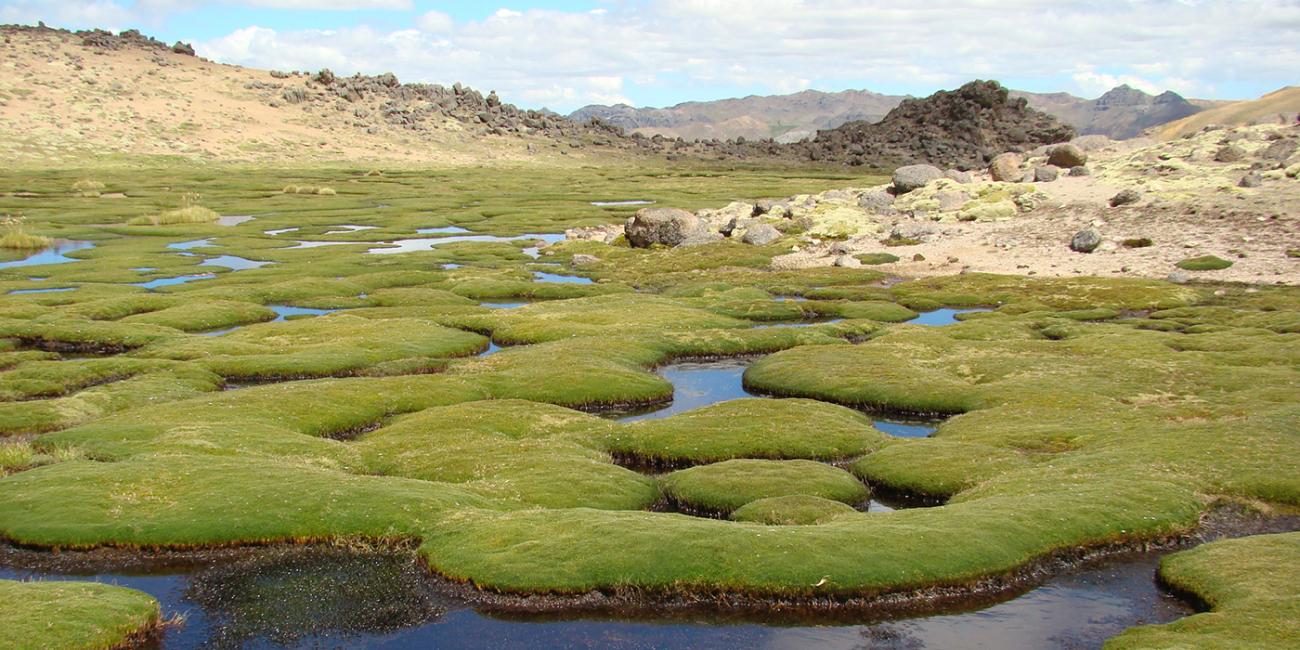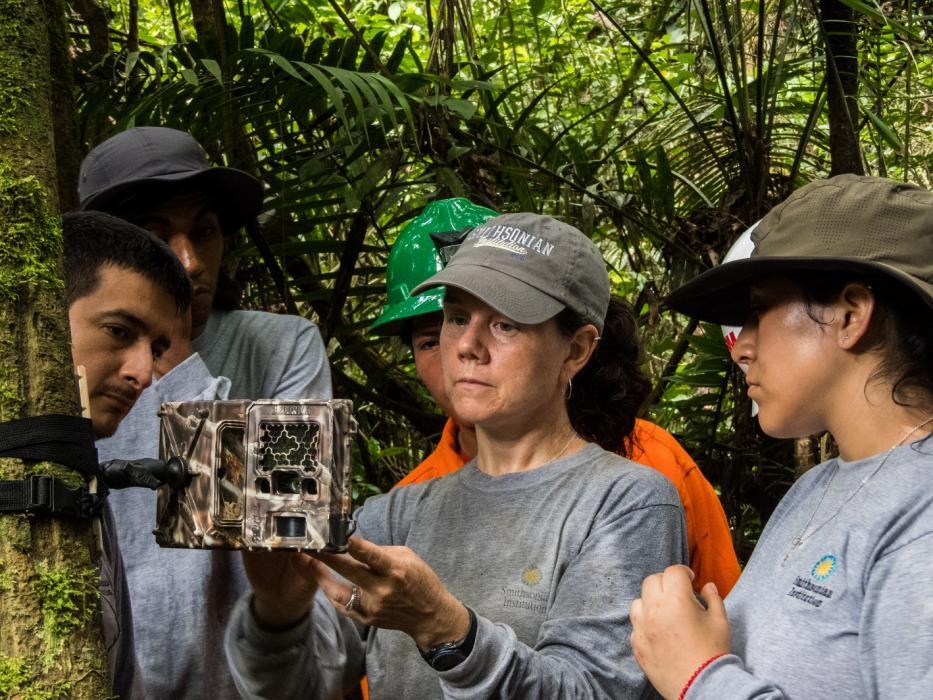Biography
Reynaldo Linares-Palomino is a tropical biologist at the Smithsonian Conservation and Biology Institute's Center for Conservation and Sustainability. His current work focuses on implementing, monitoring and assessing ecosystem restoration methodologies and activities in Andean landscapes influenced by linear infrastructure projects. He leads projects monitoring the response of selected plants and animals in areas influenced by infrastructure, from the eastern humid Andes to the drier western slopes and Pacific deserts in Peru. Linares-Palomino is leading long-term ecological studies on ecosystem restoration in high-Andean ecosystems. The generated information is shared with stakeholders (government, private industry, local communities, academia) to improve management practices in sustainable infrastructure projects. Along with fellow CCS ecologists, he has used this information to help develop and implement the first-ever quantification of the mitigation hierarchy toward no-net-loss of biodiversity. Linares-Palomino is a founding member of DRYFLOR, the Latin American Seasonally Dry Tropical Forest Floristic Network. He earned his Bachelor of Science in biology and genetics from Universidad Nacional Agraria La Molina in 1996. He earned a Master of Science in the biodiversity and taxonomy of plants in a combined program at the University of Edinburgh and the Royal Botanic Garden Edinburgh in 2002. He followed with a doctoral degree in biodiversity and ecology from the Georg-August University in Germany. He has conducted research in tropical deserts, Andean grasslands and wetlands, savannas, dry forests, montane forests, and rainforests in Belize, Bolivia, Costa Rica, Ecuador, Paraguay, Peru and Suriname.
Research Interests
Reynaldo Linares-Palomino is a tropical biologist at the Smithsonian Conservation and Biology Institute's Center for Conservation and Sustainability. His current work focuses on implementing, monitoring and assessing ecosystem restoration methodologies and activities in Andean landscapes under the influence of a trans-Andean gas pipeline. He leads the implementation of studies on selected plants and animals, from the eastern humid Andes to the drier western slopes and the Pacific desert in Central Peru.
Along with fellow CCS ecologists, Linares-Palomino has helped to enhance knowledge about the biological diversity of southern Andean Peru. In parallel, medium to long-term ecological studies are generating exciting information about ecosystem restoration, which is being shared with stakeholders (government, private industry, local communities, academia) to improve management practices, especially when they are performed by oil and gas development projects.


